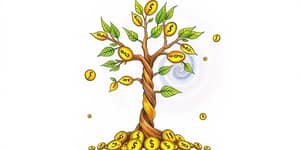In an era defined by rapid economic change and complex financial systems, understanding and controlling your finances has never been more critical. Financial literacy offers a gateway to autonomy, stability, and prosperity by equipping individuals with the knowledge to make informed decisions. This article explores the foundational concepts, global context, transformative impact, and actionable strategies that will guide you on your journey to economic empowerment.
By embracing these principles, you can unlock opportunities for growth, safeguard your assets, and contribute positively to your community’s financial well-being.
Understanding Financial Literacy
At its core, financial literacy is the ability to understand and effectively use various financial skills, including personal financial management, budgeting, and investing. It encompasses essential concepts such as interest rates, inflation, risk diversification, borrowing, saving, spending, and asset protection. Mastery of these ideas enables individuals to navigate economic challenges and seize opportunities.
- Interest rate comprehension: Grasping how rates influence loans and savings
- Inflation awareness: Recognizing how rising prices erode purchasing power
- Risk diversification tactics: Reducing vulnerability through varied investments
- Debt management strategies: Balancing borrowing and repayment wisely
The Global Landscape of Financial Knowledge
Despite its importance, only one in three adults worldwide—approximately 3.5 billion people—possess basic financial literacy. These rates vary significantly across regions, genders, and educational backgrounds. In some low-income nations, fewer than 20% of adults understand core financial concepts, while higher-income countries often exceed 50% literacy.
In the United States, an epidemic of financial illiteracy persists. Many households and schools lack robust financial education programs, leaving young people unprepared for real-world money management. Studies demonstrate a statistically significant link between high school financial instruction and increased adult banking participation, highlighting the potential impact of early education interventions.
The Impact on Personal and Societal Well-Being
Financial literacy is not merely an academic pursuit—it translates directly into improved life outcomes. Individuals with strong financial skills exhibit greater stability and resilience. They create balanced budgets, save adequately for retirement, manage or eliminate debt, and make informed decisions when comparing loans or evaluating interest calculations.
- Balanced budget creation: Ensuring income aligns with expenses each month
- Retirement planning habits: Setting aside funds early for future security
- Fraud prevention measures: Protecting assets against scams and identity theft
On a larger scale, communities with higher financial literacy experience stronger economies, lower default rates, and enhanced social cohesion. Educated consumers drive efficient markets, fostering innovation and reducing the prevalence of predatory practices.
Overcoming Challenges and Bridging the Gap
Despite clear benefits, gaps in financial education remain. Many schools worldwide have yet to integrate personal finance into their curricula, and households may lack resources to reinforce these lessons at home. Generational divides further complicate delivery methods—while older adults might prefer in-person workshops, younger learners often engage more effectively through digital platforms.
Tailored approaches are essential. Research indicates that combining traditional classroom teaching with interactive online modules yields the best results, accommodating diverse learning styles and circumstances. Collaboration between educators, governments, and financial institutions can bridge these gaps and ensure equitable access to programs.
Trends, Initiatives, and Opportunities
Financial literacy has risen on the global policy agenda, with over 60 countries implementing national strategies for financial education and inclusion. Digital learning platforms have emerged as cost-effective, scalable solutions, averaging approximately 6.5 euros per student compared to 11 euros via traditional methods. Meta-analyses of educational interventions demonstrate large effects on knowledge and medium effects on behavior, underscoring the value of structured curricula.
Teacher confidence in the United States has soared—from 9% in 2009 to 70% today—reflecting enhanced training and resource availability. Such momentum offers a blueprint for other regions seeking to empower educators and learners alike.
Taking Action: Your Roadmap to Financial Empowerment
Personal agency is the cornerstone of financial well-being. Begin by assessing your current situation: track income, categorize expenses, and establish clear financial goals. Commit to ongoing learning through reputable online courses, books, or community programs. Pair knowledge with action by automating savings, comparing loan offers, and regularly reviewing investment performance.
- Set SMART financial goals: Specific, Measurable, Achievable, Relevant, Time-bound objectives
- Build an emergency fund: Cover at least three months of living expenses
- Engage in community workshops: Share insights and support local initiatives
- Advocate for curriculum inclusion: Encourage schools to adopt financial education
On an institutional level, governments can mandate personal finance classes, while banks and nonprofits can sponsor free workshops and digital resources. By fostering partnerships across sectors, we can cultivate a financially savvy generation prepared to navigate economic uncertainties.
Financial literacy is not a destination but a lifelong journey. Every step you take today paves the way for greater stability, security, and freedom tomorrow. Embrace this path to economic power, and inspire others to join you in building a more resilient and prosperous society.
References
- https://www.oncourselearning.com/resources/benefits-financial-literacy
- https://digitalcommons.lib.uconn.edu/cgi/viewcontent.cgi?article=1902&context=srhonors_theses
- https://www.financialeducatorscouncil.org/financial-literacy-statistics/
- https://excelined.org/2025/03/04/financial-literacy-education-in-the-united-states-landscape-analysis-and-next-steps/
- https://www.annuity.org/financial-literacy/
- https://www.councilforeconed.org/policy-advocacy/research/










